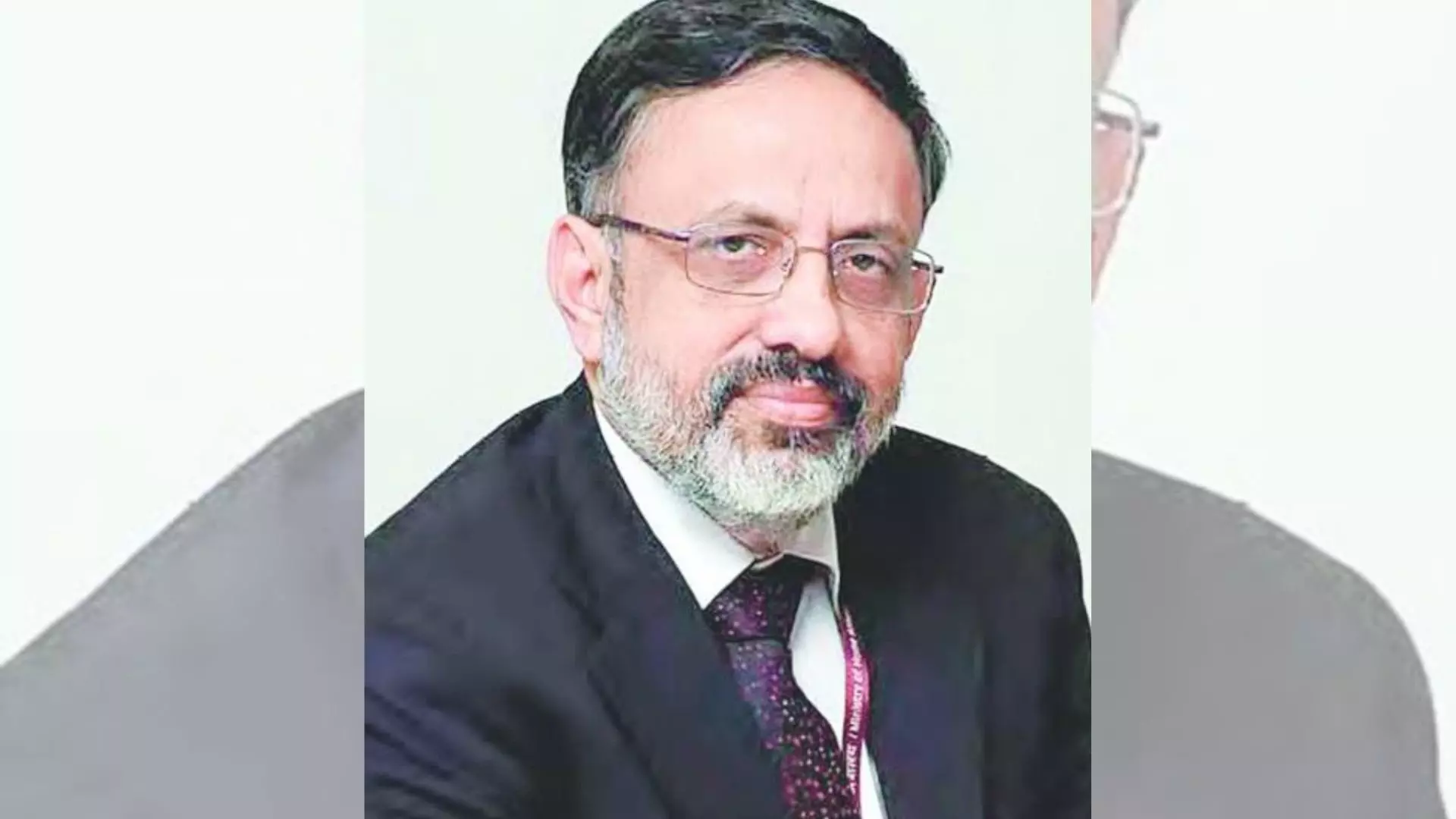Dilip Cherian | Rajiv Gauba all set to retire as longest-serving Cabinet Secy

Rajiv Gauba will make history when he steps down at the end of August, becoming India’s longest-serving cabinet secretary. A 1982-batch IAS officer from Jharkhand cadre, Mr Gauba will have clocked five years in the top role.
His predecessors didn’t come close: Pradeep Kumar Sinha served four years and 79 days, while Y.N. Sukthankar, the second Cabinet secretary of Independent India, held the post for a day less. Traditionally, a Cabinet secretary's term can be extended from two to four years. However, during Mr Sinha's tenure, the rules were tweaked, giving him an additional three months. Last year, in extending Mr Gauba’s term for the third time, the government further relaxed these rules.
As Mr Gauba's tenure wraps up, there’s a buzz about his successor. Sources have informed DKB that three senior IAS officers from the 1987 batch are in the running: Finance secretary T.V. Somanathan (Tamil Nadu cadre), Gujarat chief secretary Raj Kumar, and Jal Shakti secretary Vini Mahajan (Punjab cadre). Additionally, S. Krishnan (Tamil Nadu cadre) from the 1989 batch has emerged as a dark horse.
Sources say that Mr Somanathan seems to be leading the race. Known for his financial acumen and integrity, he’s been the expenditure secretary since December 2019 and also serves as finance secretary. His reputation is so stellar that the World Bank once asked for an extension of his tenure there, which was granted by then Prime Minister Manmohan Singh.
Raj Kumar, another strong contender, is noted for his proximity to Prime Minister Modi and his principal secretary P.K. Mishra. Mr Kumar’s tenure as secretary of defence production was highly challenging, and he now serves as Gujarat's chief secretary, known for his no-nonsense approach.
Vini Mahajan, the third contender, could make history as India’s first woman cabinet secretary. Currently the secretary of drinking water and sanitation, Ms Mahajan has extensive experience in the PMO and previously served as Punjab's chief secretary.
So, who among these worthies will ultimately succeed Mr Gauba or will Mr Modi surprise us with someone else? Stay tuned for updates.
Green revolution in elections: Anandpur Sahib leads the way
Dr Heera Lal, a 2009-batch IAS from the Uttar Pradesh cadre and author of the popular book Dynamic DM, has spearheaded a groundbreaking initiative in Anandpur Sahib, Punjab, setting a remarkable benchmark for green elections. This initiative isn’t just about conducting elections but doing so in a way that is environmentally conscious and sustainable.
In an era where environmental concerns are paramount, the efforts in Anandpur Sahib stand out. By focusing on reducing the carbon footprint of the electoral process, Dr Heera Lal demonstrated how civic responsibilities and environmental stewardship can go hand in hand. This initiative includes measures such as reducing paper use, promoting digital campaigns, and ensuring waste management practices are in place. These steps, though simple, are significant in their impact, reducing the strain on our natural resources.
What makes this endeavour particularly praiseworthy is its replicability. Anandpur Sahib’s model can be adopted by other constituencies, creating a ripple effect that could lead to nationwide changes in how we conduct elections. This is not just about one town or election but about setting a precedent for future generations.
Dr Heera Lal’s vision for a green election is a commendable stride towards a more sustainable and responsible democratic process. It’s a call to action for other leaders to follow suit, embracing innovation to protect our environment while upholding democratic principles. Anandpur Sahib and Dr Lal have shown that thoughtful planning and execution can help achieve greener, cleaner, and more efficient elections.
The Puja Khedkar scandal and beyond
The Pooja Khedkar scandal is causing quite a stir and revealing some ugly truths about our bureaucracy. The rot runs deep.
Ever since the news broke about IAS probationer Pooja Khedkar using fake documents about her caste and financial status to snag her position, the media and social media have been flooded with similar stories. It turns out several IAS and IPS officers have been misusing the reservation quota to pass the UPSC exams. Now, babus like Abhishek Singh from Uttar Pradesh and four officers from Gujarat are under investigation. The CBI is looking into favouritism in Chhattisgarh exams from 2020–2022, while Rajasthan is reviewing over one lakh hires for irregularities.
This rush to report has unfortunately led to some genuine and eligible candidates being wrongly accused. With all these investigations ordered, doubts about the selection process are mounting, especially since the Neet exam is already under the microscope.
This whole mess has sparked a call for more transparency and scrutiny in selecting babus, particularly under the disability criteria. The integrity of the civil services is at stake. Without quick and thorough action, public trust will keep eroding.

